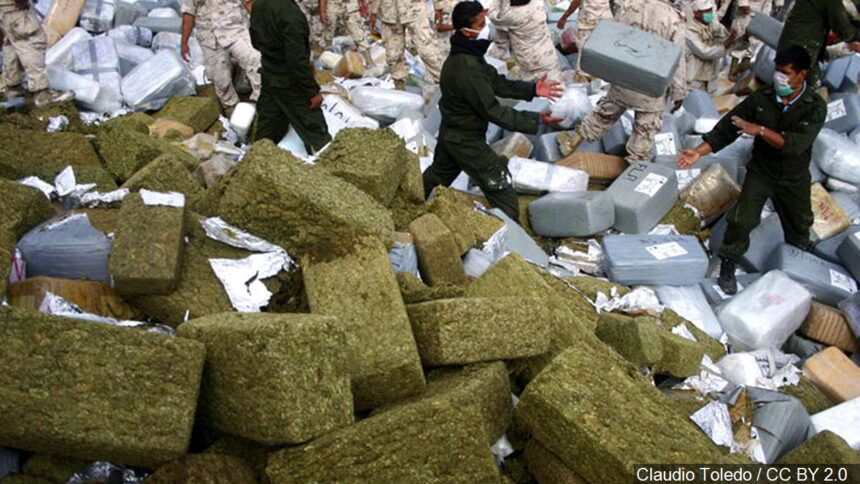Mexico drug seizures soared in 2020, led by an almost 500% rise in opiod smuggling

MEXICO CITY, Mexico -- The Mexican army said that fentanyl seizures increased by at least 486% in 2020.
Military and police forces said at year's end that they had seized an estimated 1.3 tons of the synthetic opioid, compared to 222 kilograms in 2019.
Luis Cresencio Sandoval, the country’s defense secretary, said the increase was due to the fact that synthetic drugs like methamphetamines and fentanyl are easier to produce and traffic and are more highly addictive than other drugs.
“Demand is increasing,” Sandoval said. “These drugs are much more profitable for the criminal organizations.”
Much of Mexico's fentanyl production is smuggled into the United States in the form of counterfeit pills.
Meth seizures rose by 6% to 34,555 kilograms in 2020. Meth is produced for the U.S. market, but also has become widely consumed in Mexico in one-dose packages costing as little as $1.50.
Sandoval said the number of drug labs found in Mexico almost doubled, from 91 in 2019 to 175 in 2020. He said the recently established military control of sea and land ports of entry will help stem the flow of precursor chemicals used to make synthetic drugs.
“All the raw materials used to make these drugs arrive through sea and land ports,” he said. Mexican drug cartels import most of their precursor or analogue chemicals from Asia. President Andrés Manuel López Obrador placed the Navy in charge of sea ports and the army in charge of inspections at border crossings this year in a bid to cut corruption and contraband.
Cocaine seizures were up about 45%, to around 27.5 metric tons, but marijuana seizures rose only 6% to about 244,000 kilograms. Sandoval said demand for illicit marijuana appears to be declining as Mexico has moved toward legalizing production and possession of small amounts.
The battle among cartels for turf and trafficking routes has caused a multi-year spike in homicides in Mexico.
Officials said Mexico expects to end 2020 with a small, marginal decrease of 0.4% in the number of homicides in 2020, with about 34,500 killings. The number is provisional, and will probably increase when the government statistics agency releases more reliable figures next year.
But the number of feminicides — defined in Mexico as the killing of a woman because she is a woman — rose by 0.3%, something officials said was due to a greater pressure on prosecutors not classify such crimes as simple homicides.

